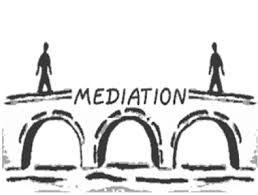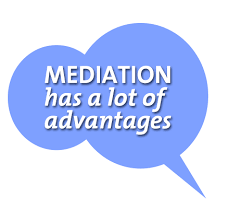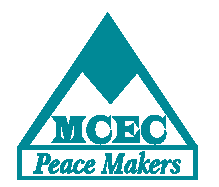
Experiencing conflict is a normal and natural part of our lives. Relationships with family, friends, co-workers and acquaintances often hit a bump in the road. Sometimes our reaction to the bump creates barriers to reconciliation. The natural fight or flight instincts create two completely different reactions and outcomes – the problem can escalate, often to violence. Or by avoiding the conflict, the parties are left at an impasse and unable to reconcile the problem.
Mediation is one way to overcome the occasional bump and produce a more constructive outcome. Using a positive problem solving approach, mediation helps create a broader understanding of the whole story, from all sides. Through open discussion, people can identify common concerns and ways to get their needs met, while respecting the needs of others. Mediation is a voluntary and confidential process.
Trained mediators are neutral parties; they do not decide who is right or wrong, or how to resolve the dispute. Their role is to facilitate an open, honest discussion and help parties work towards a mutually agreeable solution. The agreement is developed and signed by the parties involved. The responsibility for upholding the agreement rests with the participants; the Mediation Center does not enforce the agreement.
Once a case is accepted by the Mediation Center, we will do our part to assist in resolving the dispute. The mind-set of the parties engaging in mediation will determine the success of the process.
What Types of Cases Does The Center Accept? 
Mediation helps individuals and groups resolve a variety of disputes:
- Domestic Problems – family disputes, housemates, child visitation
- Neighborhood Issues – property damage, pets, noise, nuisances
- Youth Conflicts – between youths, parents, teachers, peers and siblings
- Landlord/Tenant Complainants – damages, repairs, leases and deposits
- Customer/Merchant Claims – refunds, exchanges, rentals
- Employer/Employee – personnel issues affecting performance and workplace
- Small Claims – money or property restitution under $10,000
Who Refers Cases to Mediation?
The District Attorney recognizes some court involved cases are better resolved outside of the courtroom. Before a judge hears these cases, the DA will refer to mediation, on the condition that both parties agree to participate. If the case is resolved, the DA will dismiss the charges against the defendant. However, if the case is not resolved, the case will go back to court. This process does not keep the parties from filing charges in the future.
Private Attorneys also recognize the need to resolve disputes in a neutral environment, as a first step before initializing legal action. Both parties are contacted by the Center and an appropriate time and place are arranged.
Social Service Agencies, Ministers, Counselors and Individuals identify the need to resolve underlying issues that may be getting in the way of healing a relationship. Anyone can call the Center; we will evaluate the situation and contact the other party if we can help.
Employers often use mediation as a part of the Employee Assistance Program (EAP). Other personnel issues disrupting the workplace can be addressed through mediation in a confidential environment.
If interested in Mediation services, please contact your local MCEC office to learn more (Click Here for contact information).
